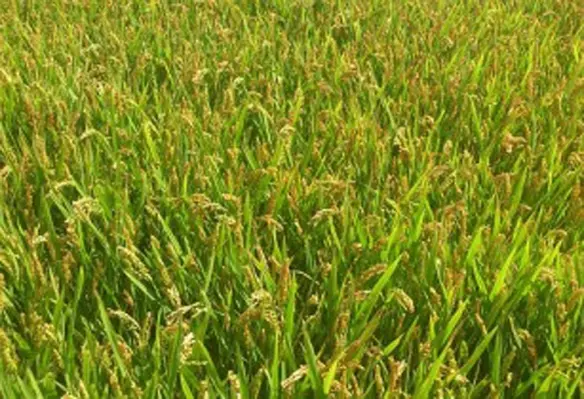The Swiss Agency for Development and Cooperation (SDC) funded project, Closing the Rice Yield Gap with Reduced Environmental Footprint project (CORIGAP), conducted a basic operator’s training and demonstration of laser-assisted land levelling technology in Letpadan, Bago Region Myanmar. More than 80 farmers were given first hand experience in using laser land levelling technology
Levelling rice fields reduces the amount of water used for land preparation and irrigation, improves the application of agronomic inputs such as fertilisers and herbicides, and increases grain yield and quality. According to research in Cambodia, land levelling has increased yield by 24 per cent per hectare.
According to Carlito Balingbing, one of IRRI’s postharvest and mechanisation engineers, “laser-assisted land levelling is a precision technology in agriculture that ensures efficient and accurate levelling of farmers’ fields. It enables uniform distribution of irrigation water and agronomic inputs, which in turn provides better yields and higher income to farmers.”
One of the activity’s highlights is setting up the laser technology system on a tractor. To fully demonstrate, participants needed a proper-sized tractor that has the optimum horsepower to move the scraper bucket around the field. Village leader U Naing Tun volunteered his equipment for the demonstration.
Balingbing, together with Yan Lin Aung, also gave an orientation on basic tractor operation and laser levelling equipment troubleshooting. During the session, the engineers explained about the cost of setting up the system and instructed the attendees on when it would be best to do field levelling. The knowledge shared with the stakeholders will help them maintain full use of the technology and sustain it for optimal field levelling.
Trainees have expressed their appreciation for this initiative. U Kyaw Min, Senator of Letpandan, said, “farming technologies (in Myanmar) are already outdated compared to other countries. It is important that we take advantage of this technology that is tested by researchers, so that work in the field will become easier and faster for farmers. Through this, we can develop our agricultural industry and export our crops to other countries."




